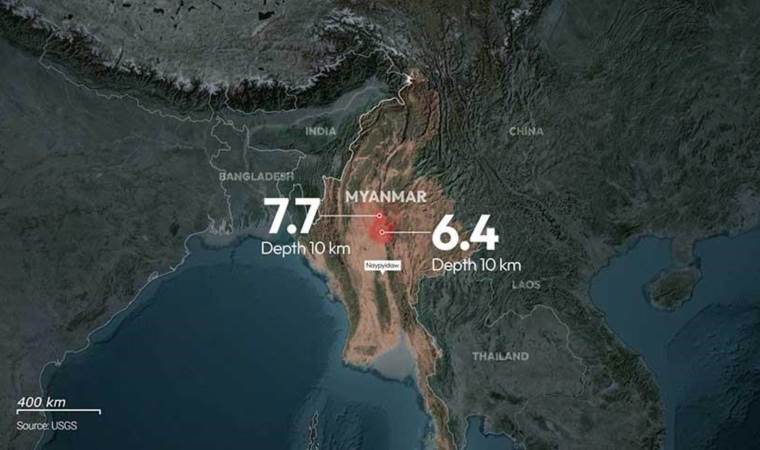Authors Columns of the Day Sport Guest Life All Authors
The Collapse of Neoliberalism: Global Consequences and Local Struggles
Aydın Öncel
One of the unresolved issues in macroeconomic policy centres around the debate regarding the role of money and the role of the state in economic life. According to Keynesians, it is the responsibility of the state to maintain a balance in employment and manage monetary affairs. However, in the 1970s, the rise of Neoliberalism challenged this perspective and emphasized monetary policy as the primary driver. This approach, which globalized exploitation, primarily targeted underdeveloped economies.
The Collapse of Neoliberalism
The system, which stripped nations of their right to self-determination, prioritizing economic efficiency above all, relentlessly promoted globalization, which resulted in impoverishing many countries. Due to its antidemocratic, exploitative, and socially unjust practices, it ultimately met its downfall and went bankrupt. Consequently, calls were made for capital to return to its home countries as swiftly as possible, and decisions were made to expedite this process. With the flight of hot money, underdeveloped economies, including Turkey, found themselves bearing the heavy cost of the wreckage caused by decades of neoliberal assaults.
The divergence between monetary and fiscal policies had its roots in the Turkish economy's shift away from statist policies, which had been ongoing for quite some time. However, in recent years, while many international organizations urgently proposed measures to mitigate the economic stagnation and inflation's devastating effects, Turkey seemed content with seeking solutions through wishful thinking. In defiance of market forces, Turkey persisted with an impractical strategy of pursuing rapid economic growth and maintaining low interest rates.
The management of the economy, characterized by frequent shifts in direction through surprise policy packages, medium and long-term plans, and decrees, has now attempted to buy time until 2026 with the announcement of the long-awaited medium-term program (MTP).
The market fluctuations triggered by the program, which fell far short of expectations, were temporarily quelled by creating the perception that it aligned with the current circumstances. This was primarily because the inflation and exchange rate targets were, at the very least, somewhat realistic. The inflation target for 2023, initially set by the Central Bank of the Republic of Turkey (CBRT) at 58 per cent, was revised to 65 per cent in the MTP. The single-digit target of 8.5 per cent has been postponed to the spring of 2026.
The most intriguing prediction regarding the dollar to Turkish Lira exchange rate projected it at 36.8 TL for 2024, while 43.9 TL and 47.8 TL were announced for the subsequent years.
In the program, the per capita income, initially targeted at $12,415 for this year, is anticipated to reach $14,855 by 2026. The growth rate, targeted at 4.4 per cent for 2023, is estimated at 4 per cent for 2024, 4.5 per cent for 2025, and 5 per cent for 2026. The unemployment rate is projected to be 10.1 per cent by the end of this year, with a predicted reduction to only 9.3 per cent by 2026.
The program, which anticipates a budget deficit-to-gross domestic product ratio of 2.9 per cent in 2026, does not provide any specifics on how these goals will be achieved. Instead, it includes numerous items that can best be described as aspirations. However, in this program, dubbed as being centred around macro-financial stability, disinflation, and structural transformation, there is no mention of structural changes about human rights, freedom of the press, or the constitutional legal framework, even though these are also essential aspirations. On the contrary, the "Guaranteed Flexibilisation of Labour Markets," which has faced opposition from labourers since its inception and is targeted for enactment into law in the third quarter of 2024, is a provision that threatens to leave workers unorganized and strip them of their remaining rights. The program lacks specific targets and deadlines for addressing poverty, and the broader population is once again singled out as a potential source of increased tax revenues.
Yazarın Son Yazıları All Columns
Günün Köşe Yazıları
Most Read News
-
 At least 26 dead, 43 missing after strong earthquakes ro
At least 26 dead, 43 missing after strong earthquakes ro
-
 Greenland set to form new unity government
Greenland set to form new unity government
-
 1 in 4 Hamburg police officers hold far-right views: Stu
1 in 4 Hamburg police officers hold far-right views: Stu
-
 Iran has responded to Trump's letter via Oman: Foreign m
Iran has responded to Trump's letter via Oman: Foreign m
-
 Russia plans Arctic military buildup, eyes cooperation w
Russia plans Arctic military buildup, eyes cooperation w
-
 BBC journalist was deported due to lack of accreditation
BBC journalist was deported due to lack of accreditation
-
 US tariffs on auto imports will have ‘extremely large’ i
US tariffs on auto imports will have ‘extremely large’ i
-
 US federal judge questions legality of Trump-era watchdo
US federal judge questions legality of Trump-era watchdo
-
 Pentagon chief pledges support to Philippines against 'c
Pentagon chief pledges support to Philippines against 'c
-
 Russian Harvard scientist detained by US immigration aft
Russian Harvard scientist detained by US immigration aft











